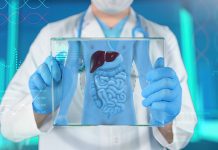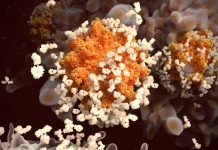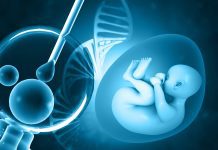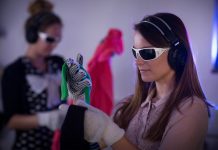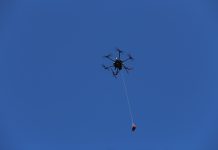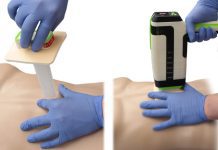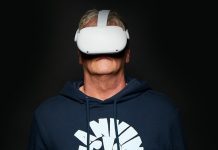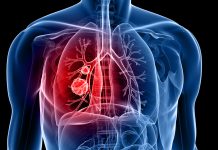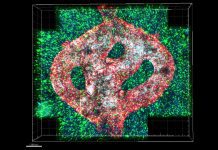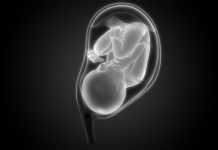Pioneering research reveals how liver fat affects heart health
A groundbreaking study conducted by researchers at AMRA Medical has identified the impacts that varying visceral and liver fat levels can have on cardiometabolic...
Enhancing vaccine design with B lymphocytes discovery
Findings from a research study of B lymphocytes – otherwise known as B cells – may aid in advancing the design of future vaccines.
The...
New communication discovered between human embryos and mother
A team of scientists based in the UK have identified an exciting new method in which human embryos interact with their mother-to-be.
The team, comprised...
Ensuring the future of the NHS with revolutionary health innovations
Lorna Green, the Director of Enterprise and Growth at Innovation Agency, part of the Academic Health Science Network, speaks about how health innovations are...
The use of the balance quotient in sport-related concussion
Matti Vartiainen from Ainone discusses a pilot study designed to identify balance quotient values for the baseline of athletes’ performance.
The ability to maintain postural...
Innovative smart cup tackles the effects of dehydration in care homes
Aquarate explain the life-threatening effects of dehydration and introduce their Hydracup, aimed at improving quality of care for loved ones.
Britain’s ageing population is increasing....
Experiential training: What does it feel like to have dementia?
Training 2 Care’s unique experiential training provides users with a glimpse of what it is like to live as a person with dementia or...
Identifying the scent of a failing lung transplant with innovative eNose
Researchers based in the Netherlands have developed a revolutionary electronic “nose” that is proficient in smelling out when a lung transplant is starting to...
ARC launch the UK’s largest study of autism spectrum disorder
The University of Cambridge’s Autism Research Centre (ARC) have launched Spectrum 10K, the most extensive UK study to date of autism spectrum disorder, a...
AI algorithm could help diagnose autism in children earlier
Scientists have developed an Artificial Intelligence (AI) algorithm which they hope could aid in the early detection of autism spectrum disorder.
A team from the...
Potential risk of stroke recurrence predicted with Artificial Intelligence
Patients’ risk of suffering stroke recurrence can be precisely forecasted with the implementation of Artificial Intelligence (AI), a new study has suggested.
A novel study...
‘Smart’ shirt developed to monitor heart metrics using nanotube fibres
Researchers have developed ‘smart clothing’ which is able to monitor heartrate and take a continual electrocardiogram (EKG) of the wearer.
A team of engineers from...
Drones could increase survival chances for cardiac arrest patients, study suggests
In a first-of-its-kind pilot project, drones have proved successful in delivering defibrillators to cardiac emergencies.
The study, carried out by Karolinska Institutet in Sweden, found...
Mobiles and smartwatches can disrupt pacemakers and defibrillators
Some models of smartphones and smartwatches can interfere with the workings of pacemakers and defibrillators, new research has found.
A study by investigators affiliated with...
Device to rapidly treat stab wounds wins UK James Dyson Award
An innovative medical device to stem bleeding from stab wounds has been awarded the James Dyson Award 2021 for the UK.
The REACT device was...
Virtual reality training launched for COVID-19 labs to tackle skills shortage
A new virtual reality training programme has been introduced for COVID-19 laboratories in the hope of meeting a mass skills shortage.
Educational technology innovator CREDERSI...
Prototype breathing device created for COVID-19 patients in poor countries
Experts have developed a low-cost and easy-to-use prototype breathing device, designed specifically for poorer-resourced healthcare settings.
Created in response to the surge of COVID-19 cases...
AI blood testing technology developed to detect lung cancers
Researchers have developed an artificial intelligence (AI) blood test technology to detect lung cancers with high accuracy.
A research team from Johns Hopkins Kimmel Cancer...
3D-bioprinted active tumour could transform cancer research
Scientists have used 3D printing biotechnology to create a complex model of a glioblastoma tumour.
Researchers from Tel Aviv University in Israel have used 3D...
Foetal membranes repair themselves after injury, researchers demonstrate
New evidence that foetal membranes have the ability to heal themselves following injury could help to reduce the risk of birth complications.
Led by Queen...







